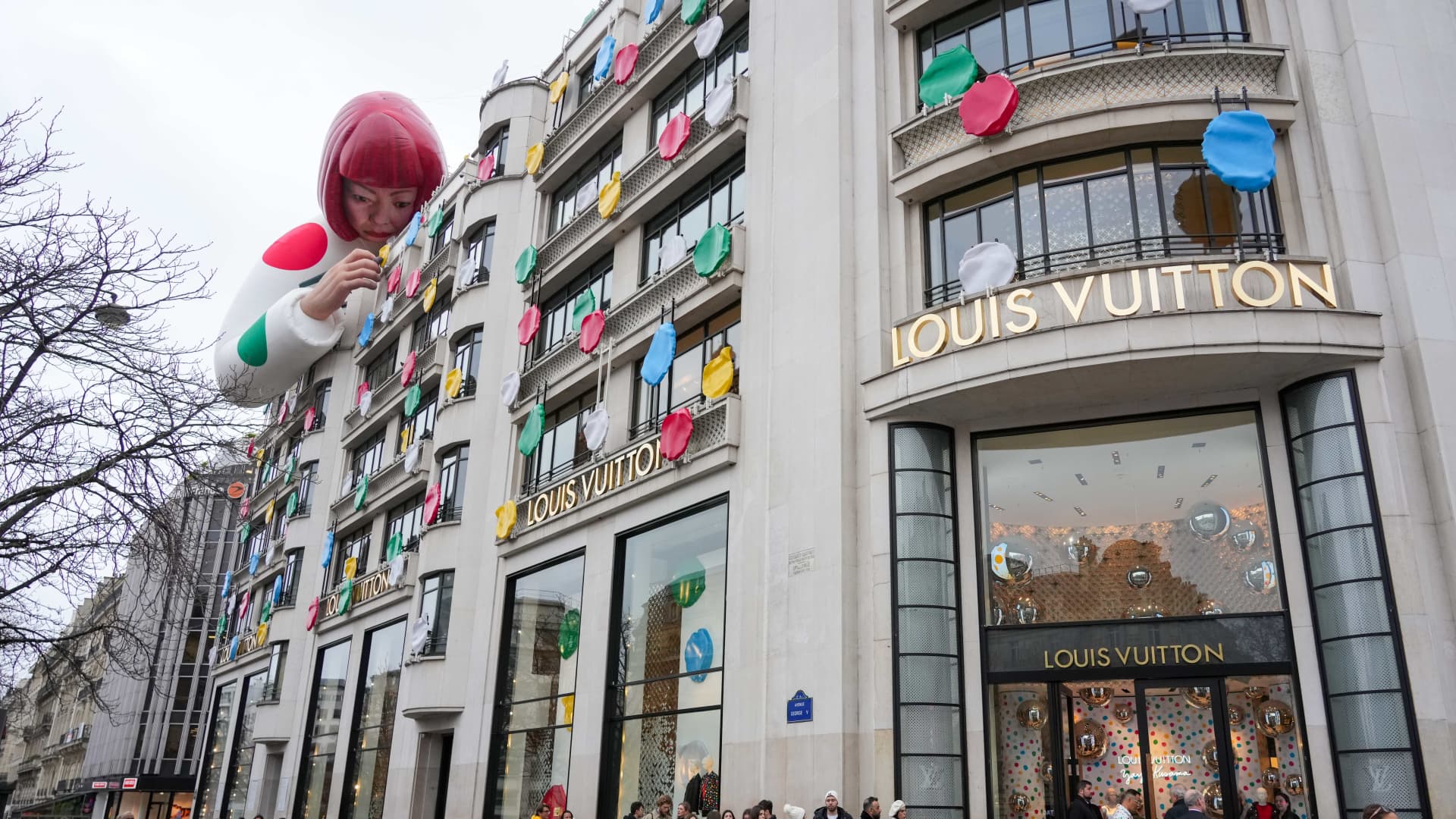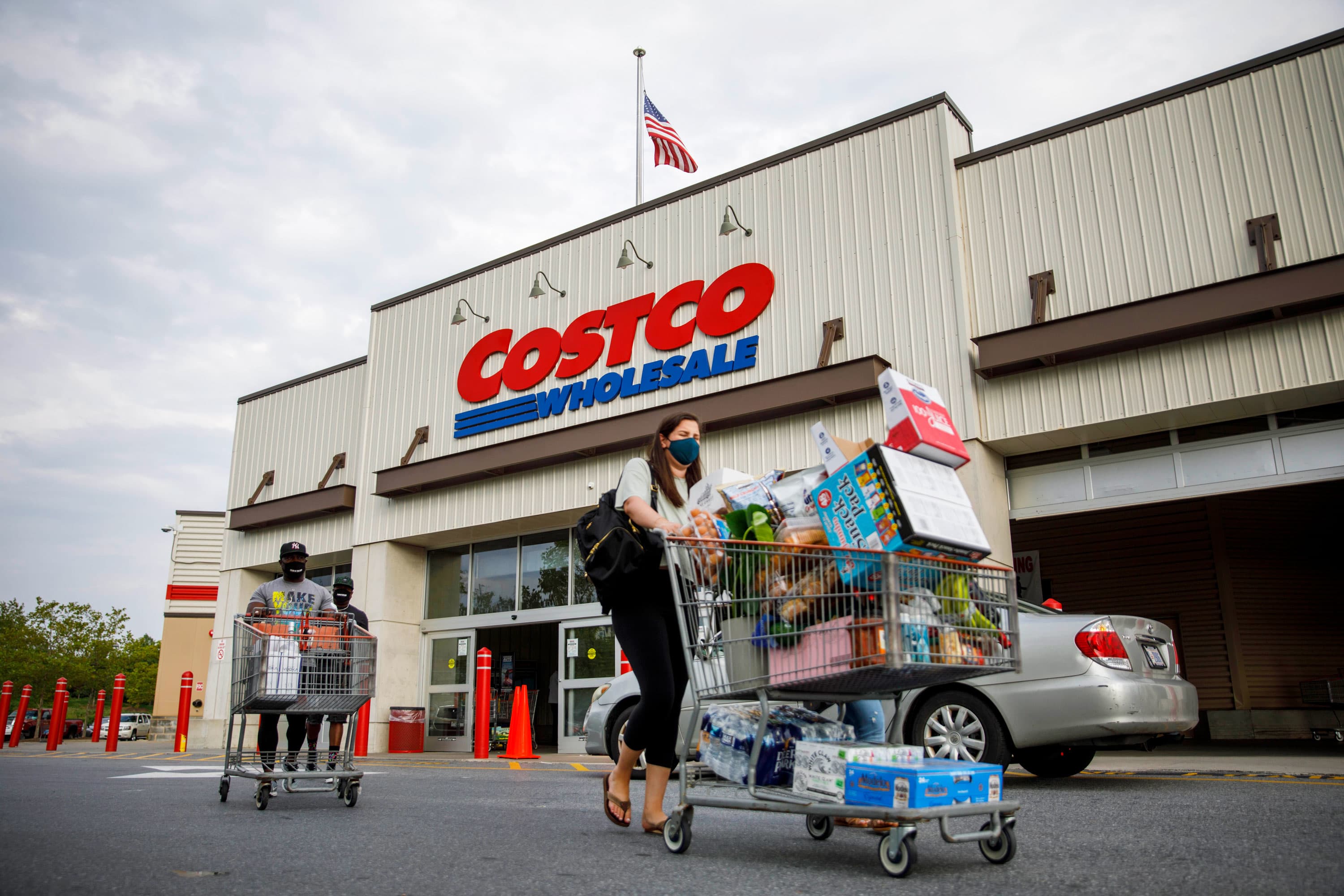Luxury giant LVMH Moët Hennessy Louis Vuitton, more commonly known as LVMH, has grown into a $500 billion powerhouse conglomerate of 75 distinguished brands, or “maisons,” rooted in six different sectors — with no plans to slow down.
The company recorded revenue of 79.2 billion euros, or about $86.3 billion, last year, an increase of 23% from 2021 revenue. Its store count has more than quintupled over the past two decades, with locations across 81 countries and more than 196,000 employees worldwide.
related investing news
Its stock reached an all-time high in April of above $199 per share, making the Paris-based firm the first European company to surpass $500 billion in market value.
Some experts have long-hailed the company as “recession-proof,” able to sustain itself through economic downturns and boasting products that uniquely appreciate over time.
At the helm of the massive ship is LVMH CEO Bernard Arnault, the world’s richest person according to the Forbes real-time billionaires index.
Some say Arnault’s strength lies in identifying companies with longevity. His most recent acquisition was Tiffany & Co. for $15.8 billion in 2021.
“When he talks about potential acquisitions, he’s not looking for the brand that’s hot right now. He’s looking for a brand that he thinks can be here 100 years from now,” said Anish Melwani, chairman and CEO of LVMH for North America.
Through Arnault, LVMH plays “the long-term game,” said Oliver Chen, managing director at TD Cowen. That keeps the company’s brands in good shape in terms of integrity, perception and relevance, he said.
Though managed by LVMH, each maison has creative control over its own brand, with its own C-suite executives and mission.
“That loss of efficiency that other companies would just put a bunch of brands together and have them run by one person, what we get is that true accountability,” Melwani said.
This is reflected in LVMH’s ability to consistently deliver products that build on its brands’ legacies, in conjunction with current trends and culture. LVMH consistently collaborates with celebrities, fashion icons and influencers in order to stay relevant for the younger luxury crowd.
Melwani said that after the Covid pandemic the company is focused on expanding its brick-and-mortar stores, which are needed due to the extraordinary growth from LVMH’s e-commerce and digital channels.
Remaining relevant is key to longevity in luxury — and LVMH’s strategy in building a brand that not only endures but continues to excel.
Watch this video to learn more.
Correction: This story has been updated to correct the spelling of LVMH in headlines.


